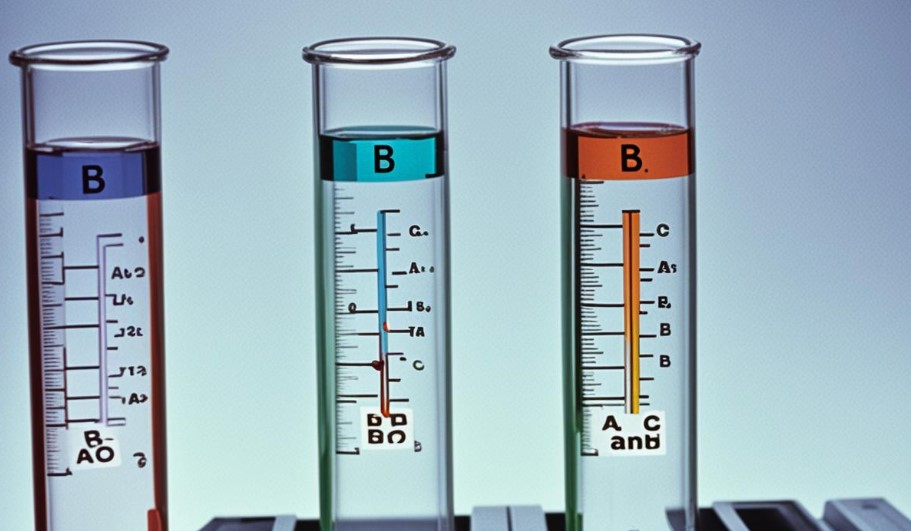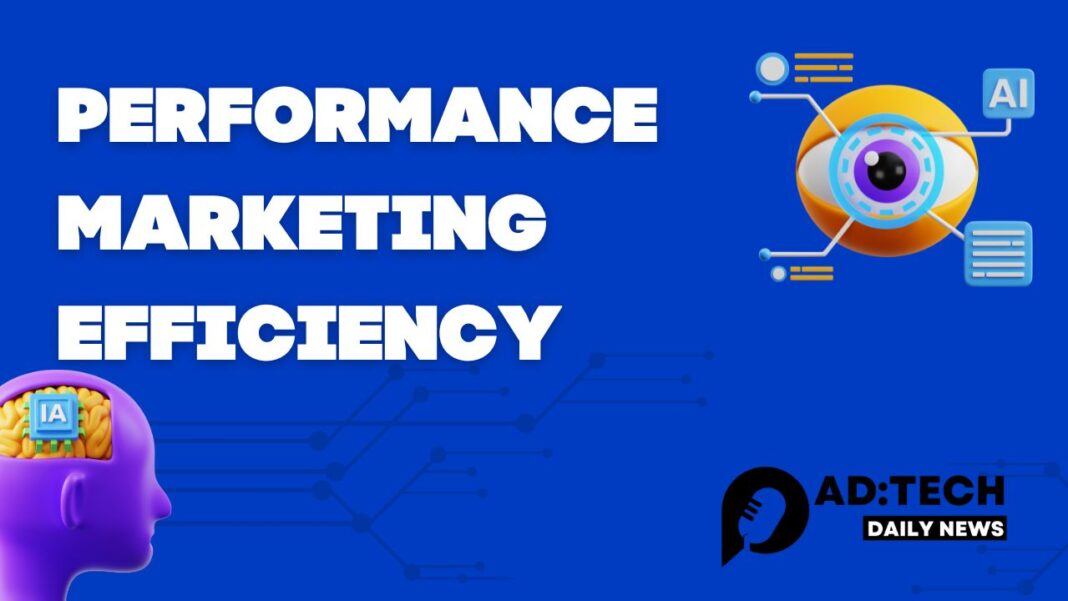Automation Boosts Performance Marketing Efficiency
A surprising fact shows that 77% of marketing leaders say automation made them successful. This shows how big a role technology plays in today’s digital world. Now, in performance marketing, being efficient is key to doing well. Marketers use automation to get ahead, cut down on delays, and get great results with data.
Automation is a key tool in the competitive world of marketing. It helps marketers refine their plans and make smart choices. Performance marketing focuses on clear results, and combining these with automation changes the game. Businesses are not just playing; they’re changing the rules with a focus on efficiency.
Adding marketing automation to strategies is not just about following trends. It’s about getting a better return on investment with smart, automated systems. As these tools get better, marketers can do more and get results they never thought possible. This marks the start of a new era in digital marketing, where being efficient is the norm.

Table of Contents
Key Takeaways
- Marketing automation is changing how we think about performance marketing and efficiency.
- Many marketing pros say automation helps them succeed.
- Using automation tools lets marketers be more precise and data-driven in their campaigns.
- Marketing efficiency now means more than just saving time; it’s about boosting ROI.
- Getting into the future of performance marketing means seeing automation as essential, not optional.
Understanding Performance Marketing and Automation
Digital landscapes are changing fast, making it key to use technology in marketing. This part looks at how performance marketing and automation have changed. It shows how they work together to make digital marketing better.
The Evolution of Performance Marketing
Performance marketing started with early pay-per-click models that focused on clear results. Over time, it has grown thanks to technology. Now, marketers can keep improving their strategies and target better.
Defining Marketing Automation
Marketing automation means using software and tech to market online (like on email, social media, and websites). It automates tasks that used to take a lot of time and effort. This is key because it helps marketers work smarter, not harder.
Intersection of Automation and Performance Marketing
Combining automated marketing strategies with performance marketing makes campaigns better and more efficient. Automation helps scale efforts, measure performance, and adjust strategies quickly. This leads to better ROI and more engaging campaigns.
This mix of tech and marketing smarts helps businesses hit and beat their marketing targets. The future of digital marketing is about using automation and performance strategies together. This will open new doors in digital advertising.
The Role of Automation in Marketing Strategies
In today’s fast-paced business world, automated marketing strategies are key to making marketing smoother and more efficient. These strategies use automation to send personalized messages to lots of customers at once. They make sure marketing efforts match business goals and boost campaign success.
With automated tools, companies can set and run campaigns on many channels at once. This means messages get sent when they’re most likely to be seen by the right people. This approach not only gets more people involved but also raises the odds of turning them into customers. It makes marketing efforts more effective.
Automation in marketing strategies uses technology to make sure every interaction with a customer is just right and on time. It changes how brands talk to their audiences.
| Feature | Benefits | Impact |
|---|---|---|
| Automated Campaign Management | Reduces manual tasks, improves accuracy | Higher operational efficiency and reduced errors |
| Personalized Content Delivery | Enhances customer experience | Increased customer engagement and loyalty |
| Real-Time Data Analytics | Enables immediate insights | Quicker decision-making and strategy adjustment |
By using automated marketing strategies, companies can make their marketing work better and learn more about what customers like. This knowledge helps make better choices, leading to better business results and happier customers.
Key Benefits of Automating Performance Marketing
Automating performance marketing makes things run smoother and boosts how well campaigns work. Let’s look at how these tools are changing marketing.
Higher Efficiency and Time Savings
Enhancing marketing performance is big thanks to automation. It makes tasks quicker and cuts down on mistakes. This means teams can focus more on strategy and creativity. They can get campaigns out faster and with more accuracy.
Improved Accuracy and Data Management
Automated tracking of performance helps businesses handle data better. This leads to smarter choices. Automation makes sure data is sorted and analyzed correctly. This makes the insights from performance better.
Scalability of Marketing Efforts
Automation lets marketing grow with the business without costing more or needing more people. This is key for businesses looking to grow without spending a lot.https://www.youtube.com/embed/fKyDOGfFEW4
Maximizing Marketing Efficiency Through Automation
Automated marketing strategies make operations smoother and boost marketing campaign efficiency. By focusing on efficiency optimization, businesses can grow and stay ahead in the fast-changing digital world.
Strategies for Implementing Marketing Automation
To start with marketing automation, first find the tasks that take up too much time and often have errors. Then, use automated marketing strategies that work well with these tasks. This makes things more accurate and gives staff more time for important tasks.
- Begin with simple automations like lead scoring and email marketing campaigns.
- Then, add more complex systems like customer segmentation and personalization based on behavior.
Optimizing Automated Workflows for Performance
Improving marketing efficiency means always making your automated workflows better. This means checking how automation tools are doing and tweaking them to work better.
| Metrics to Monitor | Optimization Action |
|---|---|
| Engagement Rates | Refine targeting criteria |
| Conversion Rates | Improve call-to-action elements |
| Customer Satisfaction | Personalize customer interactions further |
Tips for Maintaining Efficient Automation Systems
To keep automated systems running well, you need to update them regularly and train your team. Staying up-to-date with the latest in automation technology and best practices helps cut down on downtime and makes marketing campaigns more reliable.
- Regularly update software to get new enhancements and security updates.
- Have training sessions to learn about new features and how to fix problems.
Tools and Platforms for Marketing Automation
Digital marketing is always changing, making marketing automation tools more important. These tools and automation platforms for marketing help businesses run better campaigns. They make marketing more effective and efficient.
There are many marketing automation tools available, each with special features. They help with email marketing, social media, and even customer groups. These tools can really boost your marketing efforts.
- Email Automation Systems
- Social Media Management Tools
- Lead Generation and Management Solutions
- Web Analytics and User Engagement Platforms
Every automation platform for marketing has its own strengths. Choosing the right one depends on your business’s size and how you want to connect with customers.
| Platform | Core Features | Ideal for Business Size |
|---|---|---|
| Platform A | Email campaigns, Lead scoring | Small to Medium |
| Platform B | Social media scheduling, Analytics | Medium to Large |
| Platform C | Advanced automation, Multi-channel marketing | Large Enterprises |
Choosing the right marketing automation tools and automation platforms for marketing is key. It can greatly affect how well marketing works and the success of your online campaigns.
Case Studies: Successful Automated Performance Marketing
Marketing automation has changed the game for many businesses. It’s not just a tool; it’s a game-changer. This section looks at real examples where companies have boosted their marketing and ROI with automation.
Analyzing Business Impact and ROI
Marketing automation has big benefits. Companies see more efficiency and more leads. Automated systems make content more personal, which helps turn more customers into buyers. This means a big jump in ROI.
Testimonials from Industry Leaders
Industry leaders share how automation has changed their marketing. They say it makes things run smoother, cuts down on mistakes, and lets them do more with less money.
Comparative Analysis of Metrics Pre- and Post-Automation
Let’s see how marketing automation has made a difference. The table below shows how it’s helped with lead generation and customer interaction. This proves automation boosts marketing performance.
| Metrics | Pre-Automation | Post-Automation |
|---|---|---|
| Lead Generation | 200/month | 500/month |
| Customer Engagement | 50% | 75% |
| ROI | 120% | 200% |
Streamlining Marketing Processes with Automation
Automation has changed how businesses handle streamlining marketing processes. It has greatly improved marketing efficiency. Tools and technologies now help teams focus on creativity and strategy, not just routine tasks.
Automation is key in customer segmentation. It makes it easy to sort through lots of data and target marketing better. It also makes managing campaigns easier, sending out messages at the right time across different channels.
| Process | Before Automation | After Automation |
|---|---|---|
| Customer Segmentation | Manual data sorting, prone to errors | Automated data analysis, accurate targeting |
| Campaign Management | Time-consuming, inconsistent | Efficient, multi-channel coordination |
| Lead Generation | Slow, low conversion rates | Quick, higher quality leads |
Automation doesn’t just make things faster. It makes them smarter. With these tools, businesses can predict what customers will do next. They can make marketing more personal and see real results that help them succeed.
Automated Performance Tracking and Analytics
In today’s fast-changing digital world, using automated performance tracking and marketing analytics is key to marketing success. These tools give businesses real-time insights. They help make smarter, data-based marketing choices.
Automated performance tracking systems are crucial for marketing analytics. They let brands check many touchpoints across different marketing platforms easily. This makes marketing strategies more agile and boosts ROI by finding the best tactics.
| Feature | Benefits | Example Tools |
|---|---|---|
| Data aggregation | Consolidates data from multiple sources for a unified view of marketing performance. | Google Analytics, Adobe Analytics |
| Real-time reporting | Provides up-to-the-minute data, enabling immediate adjustments to campaigns. | Tableau, Power BI |
| Customer behavior analysis | Offers insights into customer interactions and preferences, enhancing personalization. | HubSpot, Salesforce |
| ROI Measurement | Calculates the return on investment of marketing campaigns, guiding budget allocations. | Kissmetrics, Mixpanel |
Using automated performance tracking and marketing analytics makes processes smoother. It also reduces manual errors and inefficiencies. This tech advancement lets marketers create campaigns that really connect with their audience.
Addressing the Challenges of Marketing Automation
Marketing automation can make things more efficient and engage customers better. But, we must tackle some big challenges to make the most of it. These include getting past setup problems, keeping customer data safe, and making sure automated systems feel human.
Overcoming Implementation Hurdles
Starting with marketing automation can be tough because it’s complex. Companies often find it hard to blend new tech with what they already have. To get past this, plan well, train your team, and roll out new systems step by step. This helps make the change smoother.
Ensuring Data Privacy and Security
Data breaches happen a lot, so keeping customer info safe is very important. Making sure marketing respects customer privacy is key to building trust. Automated systems need strong security and clear rules on how data is used to keep info safe.
Keeping a Human Touch in Automated Campaigns
Even with automation, the human touch is still vital for understanding what customers want. Keeping automated messages personal means using automation wisely. It should add to, not take away, the creativity and empathy of humans.
| Challenge | Strategies |
|---|---|
| Implementation Hurdles | Staff training, phased deployment, ongoing tech support |
| Data Privacy Concerns | Robust encryption, clear data policies, regular security audits |
| Maintaining Human Touch | Strategic automation deployment, human-led content creation |

Future Trends in Automation for Performance Marketing
Looking ahead, new tech trends are changing how brands talk to customers. AI in marketing, predictive analytics, and real-time personalization are big topics. They’re making a big impact.
Incorporating AI and Machine Learning
AI makes marketing smoother and helps make better decisions with customer data. Machine learning predicts what customers might do next. This lets marketers tailor their messages just for each person.
The Rise of Predictive Analytics in Marketing
Predictive analytics are key for seeing what’s next in trends and customer actions. They help marketers spend their budgets wisely and engage customers better. By guessing what customers want before they say it, companies can act fast.
Automation and Real-Time Personalization
Real-time personalization is changing how brands talk to people. By using data from customer interactions, companies can make content just for each person. This makes the customer experience much better.
| Trend | Impact on Marketing | Technological Drivers |
|---|---|---|
| AI in Marketing | Enhances predictive capabilities and efficiency in campaign management. | Machine Learning, Big Data |
| Predictive Analytics | Improves accuracy of future marketing strategies and reduces wasted ad spend. | Data Analysis Tools, CRM Software |
| Real-Time Personalization | Increases customer engagement through tailored communications and recommendations. | Dynamic Content Delivery Platforms, AI Driven Insights |
Best Practices for Enhancing Marketing Performance with Automation
The digital marketing world is always changing. Using marketing automation is now key for marketers who want to do better. Knowing and using best practices for marketing automation makes things run smoother and boosts marketing results.
Businesses can improve their marketing by following these important steps:
- Segmentation and Personalization: Use automation to split your audience by their actions and likes. This lets you send messages that hit the mark.
- Lead Nurturing: Set up automated steps to keep in touch with leads at every stage. This is key to turning them into loyal customers.
- Data Analysis: Use the analytics in automation tools to see how campaigns are doing and how people are engaging. This helps you make your strategies better.
- Integration with Other Tools: Make sure your automation tools work well with systems like CRM, social media, and customer service. This makes your marketing work together better.
Understanding automation helps marketers cut down on manual work and do better in marketing. Here’s a look at how automation affects different areas:
| Practice | Impact on Marketing Performance | Tools Commonly Used |
|---|---|---|
| Email Campaign Automation | Sends more emails to the right people at the right time, boosting engagement. | Mailchimp, HubSpot |
| Social Media Scheduling | Helps you connect with your audience by posting at the best times. | Hootsuite, Buffer |
| Lead Scoring | Makes it easier to turn leads into customers by focusing on the most promising ones. | Marketo, Pardot |
| Customer Journey Mapping | Creates a personalized experience for customers, leading to more satisfaction and loyalty. | Salesforce, Zoho |
Using these automation best practices makes marketing more focused and efficient. It also greatly improves how well campaigns do. By using automation, businesses can stay ahead in the market and stand out from the competition.
Measuring the Success of Automated Marketing Campaigns
It’s key to check how well automated marketing works. This part talks about how to measure success. It covers setting up Key Performance Indicators (KPIs), comparing to others, and testing different versions of campaigns.
Defining Key Performance Indicators (KPIs)
For businesses, picking the right KPIs is vital. These should match the company’s goals and show how well campaigns do. Important KPIs include how many people convert, how engaged they are, and the return on investment (ROI).
Benchmarking and Continuous Improvement
After setting KPIs, compare them to others or past campaigns. This helps spot areas to improve. It leads to better marketing strategies over time.
Leveraging A/B Testing and Experiments
A/B testing is a strong way to see which campaign version does better. It gives solid data on what works best. This is key for making smart choices and improving campaigns.

| Campaign Version | Conversion Rate | Engagement Rate | ROI |
|---|---|---|---|
| Original | 4.5% | 60% | 150% |
| Variant A | 6.2% | 75% | 200% |
Conclusion
Automation is more than just a trend; it’s a game-changer in marketing. It helps businesses improve their marketing results by making things more efficient. With technology and strategy working together, campaigns become more precise and can reach more people.
This shift has made marketing more effective and powerful. It’s key for businesses to succeed in today’s digital world. Automation has become essential for those who want to stay ahead.
Marketing automation does more than just save time and money. It helps make better decisions, build stronger customer relationships, and increase profits. It gives marketers the tools to handle complex customer interactions and new trends.
It also allows for personalized experiences for more people. If you haven’t explored automation yet, now is the time. It can help you stay competitive and even lead in innovation, ensuring your brand grows and succeeds.
The information here shows how important automation is in changing marketing. It invites marketers to start this new journey. Automation is key to redefining how we approach marketing, and it’s waiting for you to join.
FAQ
How does automation improve the efficiency of performance marketing?
Automation makes performance marketing more efficient by making processes smoother. It helps make decisions based on data and cuts down on manual work. This leads to a better return on investment (ROI).
What is the relationship between marketing automation and performance marketing?
Marketing automation and performance marketing work together to make campaigns more targeted and efficient. Automation tools track marketing performance and adjust strategies in real time. This boosts the impact of performance marketing.
In what ways can automation be integrated into performance marketing strategies?
Automation can be added to performance marketing by making customer interactions more personalized. It helps with campaign timing and aligns marketing with business goals. This improves outcomes and efficiency.
What are the main benefits of automating performance marketing?
Automating performance marketing leads to more efficiency and saves time. It makes campaigns more accurate with better data management. Marketing efforts can grow without needing more resources or money.
How can marketing automation be implemented to maximize marketing efficiency?
To boost marketing efficiency with automation, set up automated workflows. Target the right audiences at the right time. Keep updating automation systems for ongoing efficiency and relevance.
What tools and platforms are available for marketing automation?
Many marketing automation tools and platforms exist, each with special features for different aspects of performance marketing. They support campaign management and data analysis.
Can you provide examples of businesses successfully utilizing marketing automation?
Yes, many businesses have seen better efficiency and ROI by using automation in their marketing. Case studies show this, including testimonials from leaders and metrics before and after automation.
What challenges might a business face when implementing marketing automation?
Businesses might face challenges like technical and strategic hurdles, data privacy and security issues, and losing a human touch in marketing campaigns.
What emerging trends are shaping the future of automation in performance marketing?
The future of automation in performance marketing includes using AI and machine learning, predictive analytics, and real-time personalization. These trends aim to improve customer experiences and marketing results.
What are the best practices for using marketing automation to enhance performance?
Best practices include having a clear strategy, using the right tools, testing and optimizing campaigns, and analyzing data for better decisions. This helps improve future campaigns.
How should businesses measure the success of their automated marketing campaigns?
Measure automated marketing success by setting clear KPIs and comparing them to industry standards or past results. Use A/B testing to refine strategies and get better results.




